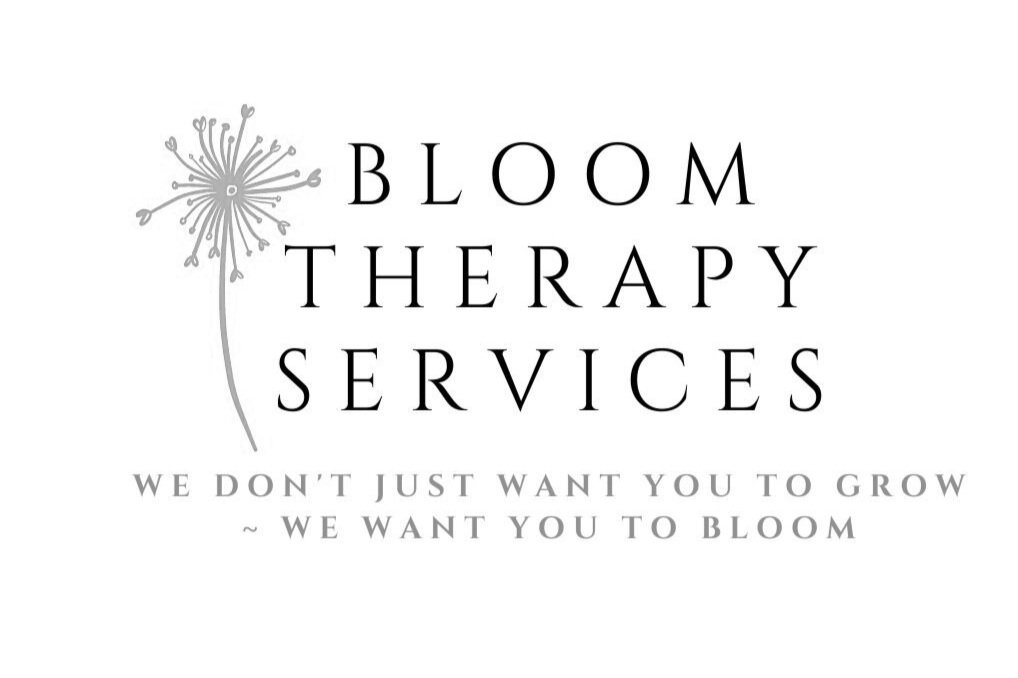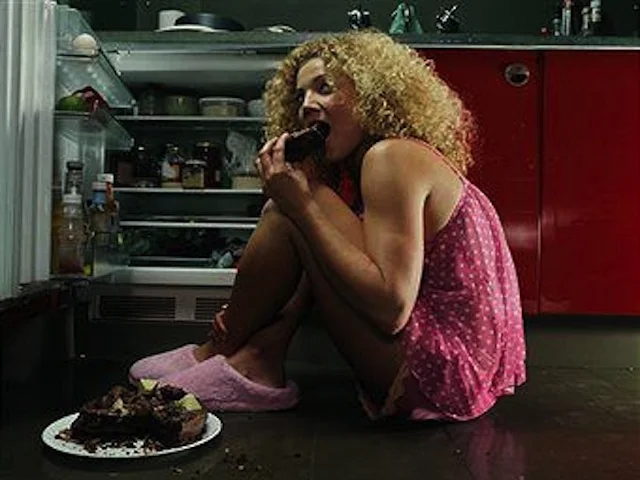Will My Insurance Pay for Obesity Counseling?
The answer is – it depends. With obesity rates climbing, the American Medical Association declared Obesity as a disease in 2013. With this change also came the cry for insurances to cover for preventative and treatment services for those afflicted with obesity issues.
Will my insurance pay for my counseling regarding obesity, disordered eating or food addiction?
The answer is – it depends. With obesity rates climbing, the American Medical Association declared Obesity as a disease in 2013. With this change also came the cry for insurances to cover for preventative and treatment services for those afflicted with obesity issues. Depending on the insurance, a wide variety of services for prevention and treatment may be available including: bariatric surgery, gastric bypass surgery, intensive counseling, formal weight loss programs, group treatment sessions, health coaches and nutritionist interventions.
Who is eligible for reimbursement?
Most patients will require a screening to see whether or not they meet the requirements for obesity. Most clinics still utilize the BMI scale to measure for obesity and this has been found an acceptable way for medical professionals to diagnose patients. Mental health counselors may also diagnose patients based on behavioral assessment via the Diagnostic Manual. A diagnosis of Binge Eating Disorder, Bulimia, or other eating disorder may also help patients meet criteria for reimbursement.
Why does my insurance company tell me I have to be seen by my doctor and my sessions with my counselor don’t count?
Many insurance companies now support the need for treatment of Obesity. However, restrictions require the patient be seen by the primary care physician in a primary care setting. This restricts individuals from seeking treatment from other health professionals such as licensed counselors, psychologists, dietitians and nutritionists. This has presented to be an ongoing issue with many arguing research supports behavioral intervention as a necessity in effective treatment for obesity related problems, an area in which medical doctors and primary care providers have little training.
How can I get my insurance to cover my visits to see my counselor?
Obesity has become a significant problem with nearly 1 out of 3 people affected. Research shows most people afflicted with obesity are also likely to suffer from Binge Eating Disorder, a diagnosable mental health issue. Binge Eating Disorder is characterized by recurrent episodes of consuming abnormally large amounts of food beyond fullness. Insurance companies are required to provide mental health coverage, however, many employers still make decisions regarding what types of problems are covered. The good news? More and more states are requiring eating disorders to be covered as part of coverage and also recommending weight not be the only factor in deciding if someone is eligible.
How do I discuss coverage with my counselor?
Many mental health providers offer a free consultation before you even begin your sessions. During your consultation, discuss insurance reimbursement with your counselor. He or she may have advice for you on how to get covered and may even be able to facilitate coverage. In addition, your counselor may have other payment options available to make treatment affordable for you.
How do I talk to my insurance about coverage for my obesity treatment?
Familiarize yourself with your insurance policy or health benefit plan. Obtain a copy from your employer or insurance company if you don’t have one.
Understand the insurance policy’s coverage for treatment at an in-network facility versus an out-of-network facility.
Ask your insurance company for a list of in-network treatment facilities.
If the insurance company has no in-network facilities in your area or state, ask your insurance company for a single case agreement with your preferred treatment facility in your area.
Document that the treatment is medically necessary by providing your doctor’s written support, your own letter describing your need for treatment, and if available, letters of support from family members or co-workers.
Document what forms of therapy and treatment you have exhausted by submitting copies of all treatment records to the insurance company.
Ensure that your facility communicates with the insurance company in writing and retains records of correspondence.
Keep records of all out-of-pocket expenses for future reimbursement.
Find out if your state has a Mental Health Parity Law. The National Alliance on Mental Illness has a chart outlining the mental health parity laws for each state.
Obtain a copy of the treatment facility’s license to determine if it qualifies as a hospital, skilled nursing facility, congregate living facility, or other health facility license through the state.
Source: https://www.eatingdisorderhope.com/health-insurance-coverage-for-binge-eating-disorder
Does Madden Wellness accept insurance?
Madden Wellness does not direct bill for insurance. However, we do provide you with a superbill, a medical receipt in which you can submit to your insurance for reimbursement.
What if my insurance doesn’t reimburse and I can’t pay?
There may be several other options available to you even if your insurance does not reimburse you. Talk to your counselor or health care provider about a payment plan, sliding scale fees or another payment arrangement. In the meantime, continue to discuss options with your insurance provider and keep all records of your treatment.
Madden Wellness is a partner at Open Path Collective, a service which allows clients to pay one monthly payment towards sessions, a convenient and cost effective way to seek treatment.
Madden Wellness also offers Advance Care financing options for those needing affordable treatment. Many individuals may be eligible for 0% financing.
Additional Helpful Resources:
Decision Memo for Intensive Behavioral Therapy for Obesity
Health Insurance Coverage for Binge Eating Disorder
How to Fight for Coverage with an Eating Disorder
What is an Out-of-Network Provider?
Happy Healthy Holiday Workshop Series
Have you ever made significant changes in your diet and lifestyle, only to relapse during the holidays?
What starts out as a plan to have only 1 plate of food, quickly turns into 2 and then maybe by the end of the week (and 4 holiday parties later) you've decided to completely abandon your goals.
"I'll start over for New Years."
"There's no point in trying to make changes now...what with the holidays just around the corner."
" It's just once a year."
JOIN US!
Watch the Preview!
FIND OUT ALL THE DETAILS ABOUT THIS UPCOMING PROGRAM, AS WELL AS GET ANSWERS TO ANY QUESTIONS OR CONCERNS YOU HAVE ABOUT SIGNING UP.
Have you ever made significant changes in your diet and lifestyle, only to relapse during the holidays?
What starts out as a plan to have only 1 plate of food, quickly turns into 2 and then maybe by the end of the week (and 4 holiday parties later) you've decided to completely abandon your goals.
"I'll start over for New Years."
"There's no point in trying to make changes now...what with the holidays just around the corner."
" It's just once a year."
Before you know it, you find yourself falling back into old habits, telling yourself you'll "start Monday" over and over again. The cycle continues and then it's April and you've gained back weight, abandoned your goals and given up altogether...... ALL because of the holiday season.
The holidays are a difficult time for many who struggle with food addiction and problematic eating. The food, family, parties and an endless supply of one tempting dessert after another presents a perfect storm of emotional eating cues and food triggers.
Not to mention the STRESS that comes with planning, cooking, going from one home to the other and shopping for gifts! This wonderful time of year sends some into a frenzy of stress and anxiety which, in turn, can result in emotional eating and a lack of willpower and motivation to take care of ourselves when we're having to take care of everything else!
That's why I'm launching the Happy Healthy Holiday series. In this program, we'll be taking a look at all the many factors that contribute to goal abandonment and emotional eating during the holiday season. We'll be diving into understanding how deep rooted beliefs and ideas we may have around our families and seasonal foods, may be sabotaging our progress.
Along with lots of great information during this 3 week program, you'll also have individual, personalized access for weekly consultation with myself, an Eating Disorder and Obesity Specialist. We'll be answering any questions you have about issues you're experiencing and take a deeper look at the roadblocks you may come across during the holidays.
In addition, you'll also be able to take advantage of daily/weekly accountability of your eating habits and emotional triggers through the Record Recovery app, a great tool which allows me to be able to provide you feedback in real-time.
It is my intention to teach you how to enjoy the holidays without having to worry about whether or not you'll be able to maintain or continue working on your healthy eating goals. I want you to have a Happy, Healthy Holiday Season!
Beginning October 29th
What's Included
3 LIVE Workshops
Week 1 - Christmas Time's A Comin' - Prevention and Preparation
The holidays can bring on an entire host of complicated feelings and emotions, many of which spill over into our food choices. Stress-eating, binge eating, to-heck-with-it eating.... all comes to the surface during the holiday season.
In this session, we will employ specific strategies to help you prepare healthfully for the holiday season. We will highlight researched interventions to help you prevent falling back into old habits. Skills such as Thought Stopping, Identifying Distortional Thoughts and Rational Emotive Behavior techniques will be covered. We'll discuss many of the problem scenarios that may come up and how to manage. We'll learn how to utilize these skills so that you can worry less about food and focus more on celebrating the season.
Week 2 - Celebrating Food and Family
Does it sometimes seem like your family DOESN'T want you to be successful with your diet? Does EVERYONE in your family go back for seconds during holiday parties -- and you feel obligated to also? At holiday parties, do you find that you have a "food pattern" (always eating the same foods, going back for seconds, eating the same desserts and feeling miserable after -- MAYBE eating AGAIN later in the evening)?
During the holiday season, tradition may apply to more than just celebration and unity. We'll be talking all about how family dynamics come into play with our food choices during the holiday season. Learn appropriate coping strategies so that you can stay on track with your goals and not fall into the family guilt trip pit. By the end of this session, you'll learn how to enjoy a holiday meal with your family without having to feel guilty about your food.
Week 3 - Have a Holly Jolly Emotional Basket Case Christmas
As much fun as the holidays are, they also tend to be some of the most stressful times of the entire year. Stress is one of the most significant factors in problematic eating! When we get stressed, we tend to let go of things in our life so that we can take control of others (like shopping, scheduling and finances!). Unfortunately the thing we let go of first - - is usually ourselves. Sometimes that translates to our health, goals and our eating behaviors.
In this session, learn how to cope with stress and still enjoy the holiday season. Learn effective strategies to mainstream your life in such a way to minimize stress and make willpower easier than it ever has been!
2 Informational Videos
- Thought Stopping Lesson - Learn this well-researched skill to stop negative thoughts in their tracks and keep you from derailing from your goals.
- Holiday Food Triggers - Identifying your triggers related to the holiday season and effective ways to overcome cravings and urges.
Weekly Food Log Accountability
Using the Record Recovery Dietitian app, you'll record your food intake each week. I'll be able to see your entries, provide real-time feedback and support via the app. Click here for more information.
Weekly Personal Coaching Calls
With Amber Madden, Eating Disorder & Obesity Specialist. (15 minutes per call)
Each week I'll speak with you over the phone, through the email or face-to-face via online to answer your questions and provide customized support.
Weekly Lesson Plan
Each week, you'll receive a Lesson Plan straight to your Inbox detailing exactly what to do in the course for the given week. In addition, you'll receive helpful handouts, additional reading and resources and Action Challenges to help you implement the week's lesson.
Progressive Muscle Relaxation Session
(to help with stress and anxiety through the holiday season.) A proven technique to help you with staying calm during this holiday season. What is PMR?
Bonus!
- Goal Setting Course from Joyful Eating program. Learn why Losing Weight is the worst New Year's Resolution, and what to do instead!
- Free Digital Download of 25 Healthy Hacks from an ED Specialist
- Option to EXTEND your Personal Coaching Sessions and Record Recovery tracking through the entire holiday season for a discounted rate of $15 per week.
- Weekly Giveaways, including fresh meal deliveries from Blue Apron, Home Chef and Hello Fresh; free subscription to Eating Well Magazine and a set of Meal Prepster containers!
- Free 7 day trial to the Madden Wellness Membership (launching soon!). Like the membership? You'll also receive the option to signup for an entire year at half price! Click here to learn more.
- And much more!
Join Us!
Begins October 29th - Early Bird Rate of $55 ends October 2nd
Click here for the FREE 7 Steps to Stress-Free Meal Planning Guide!
Amber Madden is a Licensed Counseling Associate specializing in Eating Disorders and Obesity. She is the Clinical Director at Madden Wellness Counseling, PLLC. She utilizes her skills in addiction to assist her clients in with Binge Eating, "food addictive" patterns, and develop a positive approach to overall health and wellness. She has a passion for assisting clients in achieving their health goals and learning to love nutritious foods and exercise. For more information visit www.maddenwellnessky.com .
MORE MADDEN WELLNESS SERVICES
FOLLOW ME ON INSTAGRAM
How Do I Handle My Binge Eating?
This question describes a very typical setup of what is called the Binge, Repent, Repeat cycle. This means that typically after you binge, you experience emotions as you described "shame and disappointment" and then because of these emotions you "repent" (i.e. vow to never binge again, promise to "do better," go to the gym, etc.) and then ultimately end up bingeing again.
Hello,
This question describes a very typical setup of what is called the Binge, Repent, Repeat cycle. This means that typically after you binge, you experience emotions as you described "shame and disappointment" and then because of these emotions you "repent" (i.e. vow to never binge again, promise to "do better," go to the gym, etc.) and then ultimately end up bingeing again.
There are many coping mechanisms for binge eating and one of the best is actually attempting to NORMALIZE eating. Meaning you need to attempt to eat normally, eating appropriately portioned meals 3 times a day, with snacks in between. IF you binge, then it may be helpful to remind yourself that when you attempt to compensate for your bingeing behaviors, and you end up feeling restricted from over exercising or undereating, then this actually leads to a binge again. Thus, reverting you back to the cycle. If you binge, it will be helpful to try and get back on a normal schedule of eating instead of trying to compensate for the binge. Although it may feel counterproductive, getting back on a normal eating schedule will prevent you from entering into the restrictive cycle.
It can also be helpful to remind yourself that the binge has already occurred, it is in the past and the goal is to move forward without focusing on the past. Focus on what you can do differently next time. What emotions or situations led up to the binge? What can you to do prevent or change the circumstances that led to the binge, or the way that you handled the situation?
Lastly, if you're struggling with "normalizing" eating, it can be helpful to work with a professional that can provide counseling and coaching to help you learn how to eating normally, mindfully and without feeling the guilt and other harmful emotions sometimes associated with disordered eating. I would be more than happy to assist you if you ever have any questions or want to reach out to somebody. You can contact me via my website: http://www.maddenwellnessky.com/ .
This question was submitted via Counselchat.com, an online, free mental health platform. Their mission statement: "We believe mental health is just as important as physical health. We're on a mission to bring therapy - a safe, effective, and clinically proven treatment - to everyone." If you would like to submit your own question for consideration in being answered on the blog, you can do so through my Counselchat profile page.
The information above is intended as general information based on minimal information, and does not constitute health care advice. This information does not constitute communication with a counselor/therapist nor does it create a therapist-client relationship nor any of the privileges that relationship may provide. If you are currently feeling suicidal or are in crisis, call 911 or proceed to your local emergency room.
MORE MADDEN WELLNESS SERVICES
FOLLOW ME ON INSTAGRAM

































